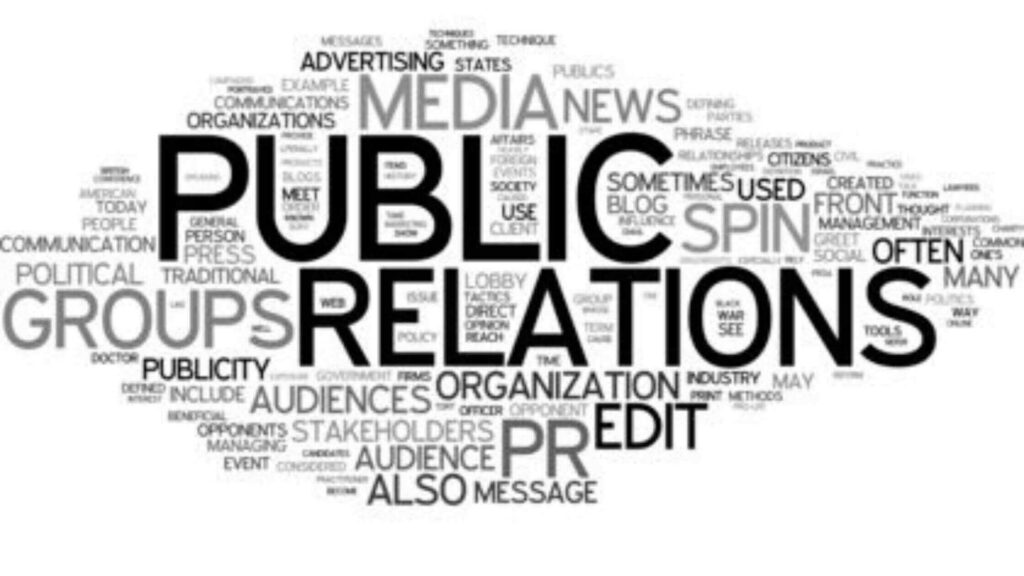Table Of Content:
- What Is Public Relations?
- Types of Public Relations Degrees
- Career To Consider In Public Relations
- Skills for Public Relations Professionals
- Conclusion
- FAQS
What Is Public Relations?

Public relations (PR) is a strategic communication practice that aims to build and maintain positive relationships between organizations or individuals and their target audiences. It involves managing and influencing public perceptions, attitudes, and behaviors through various communication channels. Public relations professionals work to create, enhance, and protect the reputation of their clients or organizations.
The primary goal of public relations is to establish and maintain mutually beneficial relationships between an organization and its stakeholders, which may include customers, employees, investors, media outlets, government entities, and the general public. PR professionals utilize a range of tactics and strategies to effectively communicate key messages, manage crises, and promote positive narratives about their clients or organizations.
Some common activities within the field of public relations include media relations, crisis communication, strategic messaging, event planning, content creation, social media management, community engagement, and reputation management. PR professionals often work closely with media outlets to secure media coverage, manage press releases, and respond to inquiries.
Types of Public Relations Degrees

Public relations is a dynamic field that offers various educational pathways to individuals interested in pursuing a career in strategic communication and relationship management. Here are some common types of public relations degrees:
1. Bachelor’s Degree in Public Relations:
A bachelor’s degree in public relations provides a comprehensive foundation in communication principles, strategic planning, media relations, and campaign management. Students learn about effective messaging, audience analysis, crisis communication, and ethical practices in public relations.
2. Master’s Degree in Public Relations:
A master’s degree in public relations offers advanced coursework and research opportunities for individuals who want to deepen their understanding of strategic communication. This degree delves into areas such as media management, public opinion, branding, and digital marketing. It equips students with the skills to develop and implement integrated communication campaigns.
3. Master’s Degree in Corporate Communication:
This degree program focuses on the strategic communication needs of corporations and organizations. It covers topics such as reputation management, stakeholder engagement, internal communication, and strategic leadership. Students gain expertise in managing communication challenges in complex organizational environments.
4. Master’s Degree in Digital Public Relations:
With the increasing importance of digital platforms, this degree program focuses on leveraging digital technologies and social media for effective communication. Students learn about online reputation management, content creation, social media analytics, and digital campaign strategies.
5. Certificate Programs:
Many universities and professional organizations offer certificate programs in specific areas of public relations, such as crisis communication, media relations, or social media management. These programs are designed to enhance specific skill sets and provide focused training for professionals already working in the field.
6. PhD in Communication or Public Relations:
For those interested in research and academia, a PhD in Communication or Public Relations allows individuals to conduct in-depth research and contribute to the knowledge base of the field. This degree prepares students for careers in teaching, research, or high-level consultancy roles.
Each type of degree offers unique opportunities for individuals to develop their skills and knowledge in the field of public relations. It is important for aspiring public relations professionals to carefully consider their career goals and choose a degree program that aligns with their interests and aspirations.
Career To Consider In Public Relations

A career in public relations (PR) offers exciting opportunities for individuals with strong communication, strategic thinking, and relationship-building skills. With the ever-increasing need for effective communication in today’s fast-paced world, a public relations degree opens doors to a wide range of dynamic and rewarding career options. In this blog, we will delve into six diverse and promising career paths for individuals with a public relations degree. Whether you are a recent graduate or considering a career change, this guide will provide valuable insights into the potential roles and opportunities that await you in the field of PR.
- Corporate Communications Specialist: Corporate communications specialists play a crucial role in managing internal and external communication for organizations. They develop strategic communication plans, create engaging content, and ensure consistent messaging across various channels. With a public relations degree, you can excel in this role and contribute to enhancing an organization’s brand reputation and stakeholder relationships.
- Public Relations Manager: As a public relations manager, you will be responsible for overseeing and implementing PR campaigns to promote organizations, brands, or individuals. You will work closely with clients, media outlets, and other stakeholders to craft compelling narratives, manage crisis situations, and build positive public perception.
- Media Relations Specialist: Media relations specialists serve as the bridge between organizations and the media. They establish and maintain relationships with journalists, pitch stories, coordinate interviews, and manage press releases. With a public relations degree, you can thrive in this role by effectively managing media interactions and securing favorable media coverage for your clients or organization.
- Event Planner: Event planning is an integral part of the PR industry. As an event planner, you will organize and execute corporate events, product launches, conferences, and other promotional activities. Your ability to coordinate logistics, manage vendors, and create memorable experiences will be crucial in this role.
- Social Media Manager: In today’s digital age, social media has become an essential platform for PR professionals. As a social media manager, you will develop and implement social media strategies to enhance brand visibility, engage with audiences, and monitor online conversations. Your skills in content creation, analytics, and community management will be vital in successfully navigating the digital landscape.
- Nonprofit Communications Coordinator: If you have a passion for making a difference and supporting causes, a career as a nonprofit communications coordinator may be an ideal choice. In this role, you will create and implement communication strategies to raise awareness, engage donors and volunteers, and advocate for the organization’s mission.
Skills for Public Relations Professionals

Public relations professionals play a crucial role in managing communication and building relationships between organizations, individuals, and the public. To excel in this field, it is essential to possess a diverse set of skills. Here are some key skills for public relations professionals:
- Excellent Communication: Strong written and verbal communication skills are fundamental in public relations. Professionals should be able to craft compelling messages, write press releases, pitch stories to the media, and effectively communicate with stakeholders.
- Media Relations: Building and maintaining relationships with journalists and media outlets is a vital skill for public relations professionals. They should know how to pitch stories, organize press conferences, handle media inquiries, and cultivate positive media coverage.
- Strategic Thinking: Public relations professionals must have the ability to think strategically and develop effective communication plans. This involves understanding target audiences, setting clear objectives, and devising strategies to achieve them.
- Relationship Building: Building and nurturing relationships with stakeholders, including clients, media personnel, influencers, and community members, is essential. Public relations professionals should have strong interpersonal skills and the ability to connect with people from diverse backgrounds.
- Crisis Management: Public relations professionals need to be adept at managing crises and handling sensitive situations. They should be able to respond swiftly, provide accurate information, and mitigate any potential damage to the organization’s reputation.
- Digital Media Expertise: In the digital age, public relations professionals must have a solid understanding of social media platforms, digital marketing, and online reputation management. They should know how to leverage digital channels to engage with audiences and monitor online conversations.
- Creativity: Creativity is important in developing unique and attention-grabbing campaigns. Public relations professionals should be able to think outside the box, generate innovative ideas, and craft compelling stories that resonate with the target audience.
- Analytical Skills: Analytical skills are necessary to measure the effectiveness of public relations efforts. Professionals should be able to analyze data, track key performance indicators, and make data-driven decisions to optimize communication strategies.
- Adaptability: Public relations is a fast-paced field that requires the ability to adapt to changing circumstances and industry trends. Professionals should be flexible, open to new ideas, and willing to embrace technological advancements.
- Cultural Awareness: Public relations professionals should have cultural sensitivity and an understanding of diverse communities. They should be able to navigate cultural nuances and tailor their communication strategies accordingly.
By developing and honing these skills, public relations professionals can effectively navigate the complex landscape of strategic communication and contribute to the success of organizations and individuals they represent.
Conclusion:
A public relations degree opens doors to a diverse range of career opportunities that offer excitement, growth, and the chance to make a significant impact. Whether you choose to work in corporate communications, media relations, event planning, social media management, or the nonprofit sector, the skills gained through your degree will equip you for success. By exploring these six career paths and understanding the roles they entail, you can embark on a fulfilling journey in the field of public relations.
Remember, the world of PR is constantly evolving, so continuous learning, networking, and staying abreast of industry trends will be essential to excel in your chosen career path. With dedication, passion, and a strategic approach to career planning, you can achieve job satisfaction and make a meaningful impact in the dynamic world of public relations.
FAQ:
What is a typical career path in public relations?
The career path in public relations can vary based on individual preferences and opportunities. However, it often starts with entry-level positions such as PR assistant or coordinator, where professionals assist in media monitoring, drafting press releases, and supporting campaigns. As they gain experience, they can progress to roles like PR specialist, account executive, or media relations manager. With further experience and expertise, they may advance to PR manager, director, or even a leadership position in PR agencies or corporate communication departments.
Why do you want to explore a career in PR?
Exploring a career in public relations can be appealing for several reasons. PR professionals have the opportunity to work with diverse clients, industries, and projects, making each day unique and exciting. They get to use their creativity, strategic thinking, and communication skills to shape public perception, build relationships, and manage reputations. PR also offers opportunities for networking, career growth, and making a positive impact. If you enjoy working in a dynamic and fast-paced environment, collaborating with others, and telling compelling stories, a career in PR can be a fulfilling choice.
What is the future of public relations jobs?
The future of public relations jobs is promising. With the increasing importance of reputation management, stakeholder engagement, and effective communication, the demand for skilled PR professionals is expected to grow. The digital landscape has also opened new avenues for PR, including social media management, influencer partnerships, and online reputation management. PR professionals who adapt to technological advancements and possess a strong understanding of digital media will be well-positioned for success. Additionally, the need for crisis management expertise, strategic communication, and brand storytelling will continue to be valuable skills in the evolving PR landscape.





